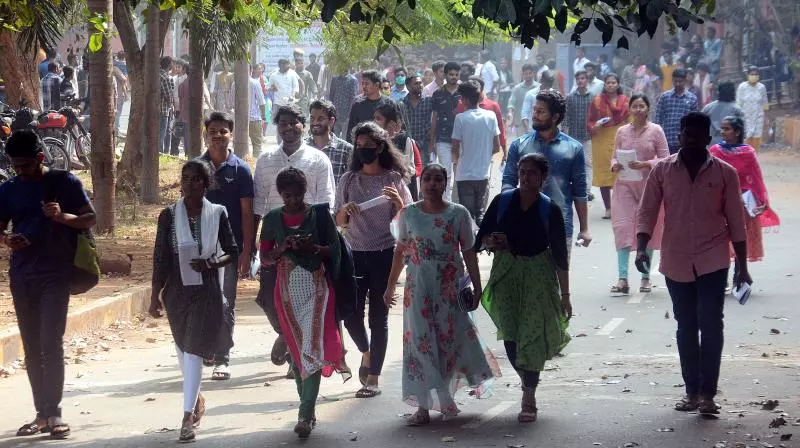
A panel discussion titled, Diversity, Equity and Inclusion – Where does the Indian games industry stand on DEI when compared to global standards, in progress at the 16th edition of IGDC, in Hyderabad, on Wednesday.
| Photo Credit: Siddharth Kumar Singh

A participant at the 16th edition of India Game Developer Conference (IDGC) 2024, at HICC, Hyderabad, on Wednesday.
| Photo Credit:
NAGARA GOPAL
At the 16th India Game Developer Conference (IGDC) that began in Hyderabad on Wednesday, a panel of experts urged the Indian gaming industry to address deep-seated issues surrounding Diversity, Equity, and Inclusion (DEI).
Highlighting the prevalence of gendered and age-based biases, the panellists shared their insights on how these issues create barriers for individuals across different backgrounds, particularly in a field with a largely diverse user base.
“When I shop for toys for my one-year-old, the immediate question is whether it’s for a boy or a girl, as if toys must align with gender. Similarly, in gaming, roles are often stereotyped, suggesting that only individuals of certain ages, genders, or backgrounds belong, while others are implicitly excluded,” said Vipasha Joshi.
The panel, titled, Diversity, Equity and Inclusion – Where does the Indian games industry stand on DEI when compared to global standards, included Kumar Chandrasekaran, studio director of Saffronic; author and former game designer Lavanya Lakshminarayan; Ranjith Radhakrishnan, founder and CEO of Wyb Social; and Vipasha Joshi, founder of Creator Chronicles.
Panellists cited examples of how ingrained these biases are, even at the character selection stage in games.
“Despite women making up 40% of gamers in India, early gaming experiences often requires players to choose white male characters. Inclusion of female and LGBTQIA+ characters remains limited, underscoring a lack of representation,” added Lavanya Lakshminarayan.
The discussion also highlighted age-based prejudice, or ‘ageism’ prevalent in the industry.
“Some industry leaders view younger people as lazy or less productive than experienced professionals, leading to their exclusion,” Ranjith Radhakrishnan noted, adding that the voices and perspectives of young gamers are essential to the future of gaming.
Many companies, the panel argued, engage in ‘performative diversity’ hiring diverse candidates to tick boxes rather than to value the merit they bring. They called on industry leaders to approach DEI initiatives with genuine intent, recognising the measurable value that a diverse team can contribute to the gaming landscape.
“DEI is an investment. There shouldn’t be diversity for diversity’s sake; rather, organisations need to understand how each person completes the puzzle to create meaningful connections,” Mr. Kumar Chandrasekaran remarked, stressing the importance of identifying and addressing these systemic issues for real change.
Published – November 13, 2024 08:43 pm IST






